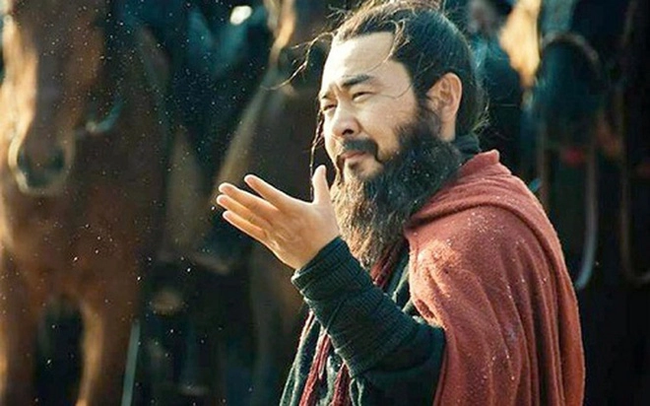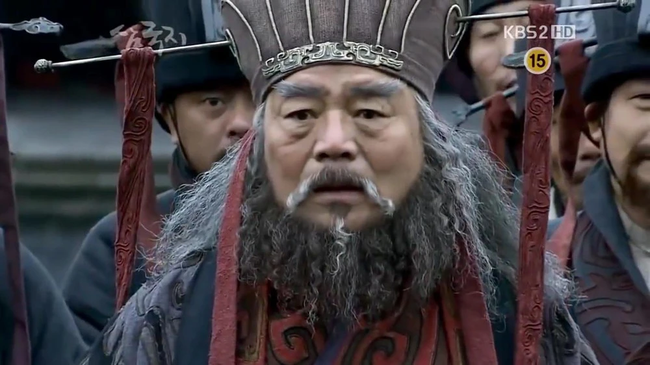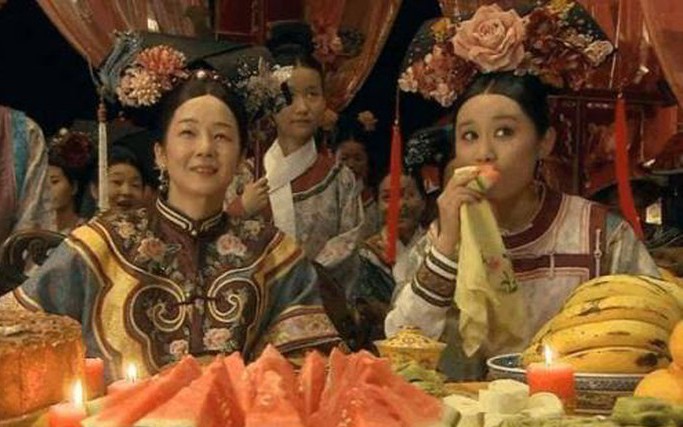Who were the two most notorious grave robbers of the Three Kingdoms period?
According to researchers, grave theft is a phenomenon that appeared almost simultaneously with the emergence of the burial culture in China. From the Spring and Autumn period – Warring States period, in the human world, there was a story of grave theft, but with the most profound influence, it must be taken into account that Ngu Tu Tu dug the grave of Chu Binh Vuong, took a whip to destroy the body and took revenge as the head.
Ngu Tu Tu dug Chu Vuong’s grave to avenge an eternal vendetta, not because of burial items in the tomb. His actions were clearly “for a purpose but not for money”, so he was worshiped as a tutor by Ban Son, with the principle of “having needs but not seeking talent”.

Cao Cao stands in front of Vien Thieu’s grave. (Scene from the movie Three Kingdoms acting).
At the end of the Qin dynasty, Han Chu fought for heroes, and Xiang Yu destroyed the Qin mausoleum, burned the palace, and looted countless treasures. Xiang Yu and Luu Bang were rebels against Qin, so the later generations of Xa Linh athletes all took the word “meaning” as a guise to gather and worship West Chu Ba Vuong as their ancestor. Moreover, King Chu has the power to move mountains and fill the sea, which is also a good omen for those who specialize in destroying graves with external forces.
During the Three Kingdoms period, tomb theft was extremely developed, and not only Cao Cao had an army specializing in stealing graves. Among the famous tomb robbers of this period, it is impossible not to mention Dong Zhuo.

Cao Cao owns an army of elite grave robbers. Photo: Sohu
The truth is that Cao Cao, in addition to the name of “cheat in a time of chaos”, is also the ancestor of the main profession of grave digging. In fact, the reason Cao Cao had to be a cultist was very simple, that was to raise his army.
At the end of the Eastern Han Dynasty and the beginning of the Three Kingdoms period, because of the constant war, the food that people grew was destroyed, plus the natural weather factors, so the food at that time was an extremely luxurious thing. is his life, Cao Cao, because he wanted to reduce financial pressure, thought about cult in order to get more gold and silver, and then take that money to feed his army.
He set up a small detachment specializing in graves, and called them “Mo Kim Hieu Uy” or “Mac Kim Hieu Uy” (an official specializing in finding gold). This is also the army most mentioned in the film adaptations, the novel Ma Blows the Lamp or Dao Tomb.
Cao Cao’s most famous grave theft was the theft of the tomb of Liang filial king Liu Yu, Liu Yu was the uncle of Emperor Liu Che of Han Wu. The gold and silver in that tomb can help Cao Cao feed his army for 3 years.

Dong Zhuo used to be a wanderer, wandering everywhere, so there’s nothing he can’t do. Photo: Sohu
About Dong Trac stealing graves, folk left many anecdotes. Most of those anecdotes refer to an elite army under this character.
But it is worth mentioning that this army not only followed Dong Trac to fight north and south to build a career, but also willingly followed him to invade the resting place of the dead in search of treasures.
In the book of the Later Han, Dong Zhuo listed a story that once recorded that Dong Zhuo ordered Lu Bu to steal treasures in an ancient tomb. According to the Later Han, Dong Zhuo had been wandering around since childhood. So it is not uncommon for this official to act like a grave thief.
Regarding Dong Zhuo’s tomb theft missions, the most famous event was the event that this official brought the Western Liang army to invade the tomb of Emperor Wu and Liu Che.
According to folklore, Dong Zhuo risked his life to rush into the resting place of Emperor Han Wu which was not for any valuable treasure. The real purpose of the mandarin Dong in that grave robbery was just to find a cure for his niece, but this time, Dong Trac’s grave robbery was unsuccessful.
The anecdote about this unsuccessful tomb robbery of Dong Trac has been handed down by folk for many generations. To this day, posterity has not been able to verify the truth of this story.
at Blogtuan.info – Source: danviet.vn – Read the original article here

